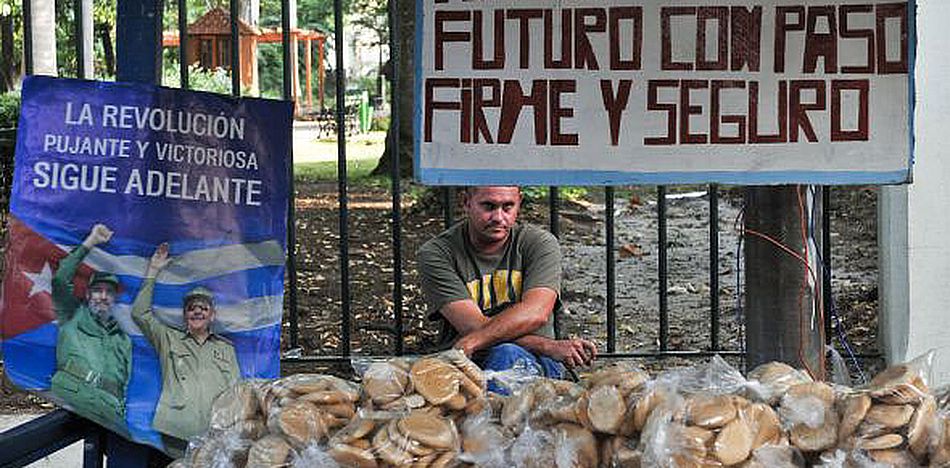
EspañolCuba’s government claimed that the economy would improve after it announced a legalization of self-employment, but things haven’t exactly gone to plan. So far, the policy has put the average worker at a disadvantage and benefitted a few chosen individuals.
When are we going to realize that private property has always been a hated enemy of the Cuban dictatorship?
In 2010, the government pushed an innumerable amount of decrees, laws and resolutions authorizing self-employed workers who weren’t private at all. It’s impossible to have private companies in a country where the state has a monopoly over all means of production.
The truth is that in 2010, there wasn’t even enough money in Cuba to pay workers their salaries. For that reason, Cuban governors opted to minimize staff by firing thousands of people at a time, selling them on the idea that it’s better to be self-employed.
However, after seven years, self-employment has become just another way to exploit the people, as the prices of products are often raised to more than 50 percent, while salaries and pensions remain the same.
It’s important to understand that there are two different currencies in Cuba. There’s the CUP, for every day Cubans, and there’s the CUC, which is convertible to other currencies, and used by tourists. CUCs can only be used to purchase “non-essential” luxury items. To give you some idea of the misery people in Cuba have to endure: you need CUCs to buy soap.
In order for a Cuban to buy soap, they have to convert currency into CUCs. To borrow from the socialist lexicon: hygiene is a bourgeois luxury. The image of first-class health is exported to a different currency so that the world doesn’t see the reality of Cuba under this regime — one where basic cleaning products are difficult to access.
The government’s low productivity has caused certain independent businessmen to monopolize the scarce merchandise sold in state establishments and resell them at higher prices.
A box of cigarettes, for example, which through the state costs $7 CUP, are resold at $10 CUP. Beer, whose official price is $25 CUP, is resold for $30 to $40 CUP. A carton of eggs, which has an official price of $33 CUP, is being sold for $90 CUP. A can of soda costs between $15 and $20 CUP — almost twice its official price.
- Read More: Cuban Dictatorship Bars Entry to Widow of Murdered Dissident Oswaldo Payá
- Read More: China Becomes Cuba’s Largest Trading Partner, Donates US$12 Million for Hurricane Relief
The government’s new employment policy, therefore, has only made it even more difficult to make ends meet, especially when taking into account that the average salary is below $15 CUP per day. In other words, in order to buy a can of soda, Cubans must spend more than an entire day’s salary.
For those who can’t afford the resold products, the other option is to stand in endless lines for state handouts. A lot of people make deals with security guards so the process goes faster. But still, high prices have generated suspicion. In essence, the so-called “self-employed” vendors are another state mechanism.
A few months ago the Cuban government, as always, started blaming economic blockades and the people’s lack of discipline for the miseries suffered by islanders. At the same time, officials said they are studying ways to improve the program. It’s nothing more than political treachery by the regime.
The Cuban leaders have already achieved what they wanted: to get out of the difficult situation that arose for them seven years ago, and to help out their cronies by allowing them to corner the scarce market on groceries.
But the saddest thing is that Cubans by and large resign themselves to this slavery, and very few strive toward a decent life of freedom.
 Versión Español
Versión Español












